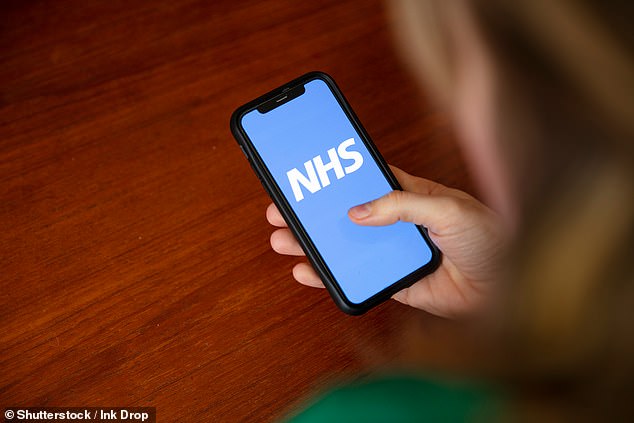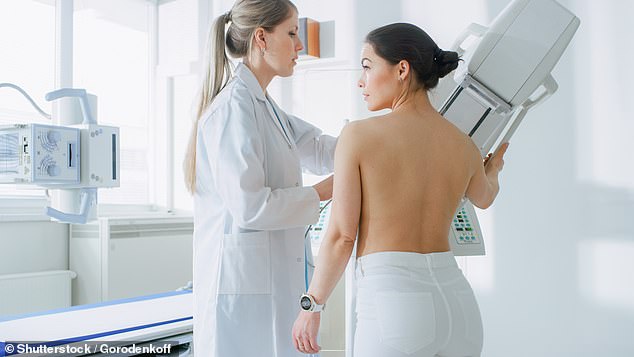The NHS will launch a new ‘ping and book’ service for cervical and breast cancer screening in a bid to boost uptake and save more lives and money.
Starting next month, women who use the NHS app on their mobile phone will receive notifications telling them they are due for a mammogram or are overdue.
This will be extended to smear tests in spring next year and, from early 2026, millions of women will be able to book breast screening appointments through the NHS app.
It is part of plans to fully digitize the way breast, bowel and cervical screening reminders and appointments are made, aiming to save the NHS more than £130 million over the next five years.
Under the new launch, women who don’t have the app and those who don’t respond to messages will receive an email or text message, followed by a letter by post.
NHS cancer screening programs currently send more than 25 million invitations, reminders and results letters to patients by post, costing £14.7 million each year, NHS England said.
More than 18,000 breast cancers were detected in women across England last year through screening (file image)

Women who use the NHS app on their mobile phone will be sent notifications telling them if they are due or overdue for their mammogram (file image)
Amanda Pritchard, chief executive of NHS England, told the annual NHS provider conference in Liverpool: “We are really excited about the potential for technology to revolutionize access to cancer screening for women and help ensure that all eligible people can make the most of these lives. save services with the touch of a button.
‘Next month we will start rolling out a new “ping and book” approach to breast and cervical checks via the NHS app, which will replace the costs of letters and texts with pop-ups on your phone and help make it easier as convenient as possible. as much as possible to book appointments.’
Last year, more than 18,942 breast cancers were detected in women across England through screening.
However, despite an overall increase in uptake last year, figures for 2022/23 show that more than a third of women (35.4 per cent) did not take up the offer to have a breast exam following an invitation.
In total, 2.18 million eligible women in England have not had a mammogram in the last three years.
The data also shows that in December last year, around one in three women aged 25 to 49 did not take up the invitation to have a cervical exam, while just over a quarter of those aged 50 to 64 years did not do it.

Health and Social Care Secretary Wes Streeting welcomed the plans and said they will make the process “easier for millions of women”.
Michelle Mitchell, chief executive of Cancer Research UK, said: “Screening programs are effective tools for detecting cancer early, before symptoms start.”
“Innovations like this could make it easier for people to access screening and ultimately increase the number of cancers detected at an early stage.”
Athena Lamnisos, chief executive of women’s health charity Eve Appeal, said: “To achieve the ambitious but achievable goal of eliminating cervical cancer, we must encourage all eligible people to take part in the screening programme.”
“To achieve this, modernizing the invitation system is key: informing people when it is time to take the exam and making it easier for them to book an appointment that suits them.”
The move comes after the announcement of a new pilot scheme in Somerset, to see if online 111 could refer women with “red flag” symptoms to breast cancer checks without the need to see a GP, as the NHS continues its campaign to improve women’s health. .
Claire Rowney, chief executive of Breast Cancer Now, said: “Breast screening plays a central role in saving more lives from breast cancer.”
‘However, the stark reality is that thousands of women in England go undetected for their breast cancer each year, and the decline in breast screening uptake in recent years is deeply worrying.
“This is why urgent changes are needed to the breast screening program to ensure women’s access both now and in the future.”
Health and Social Care Secretary Wes Streeting said: “If we want the NHS to be fit for the future, we must detect cancers earlier so we can give people the best chance of survival.”
“I very much welcome plans to make it easier for millions of women to book a test by harnessing the power of the NHS app.”

